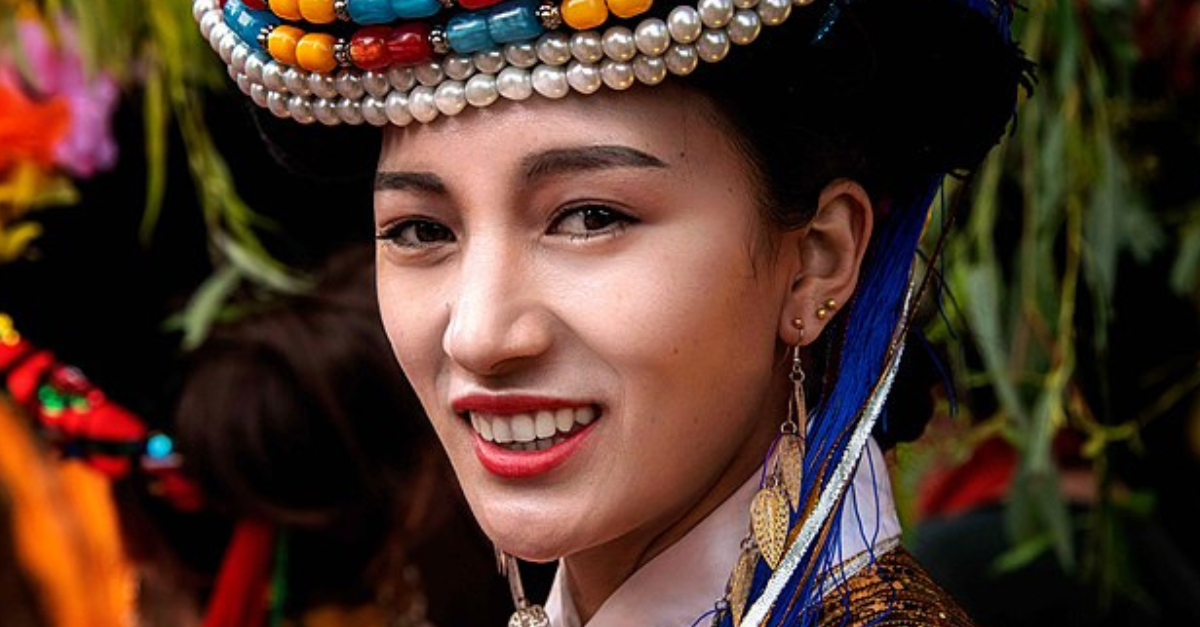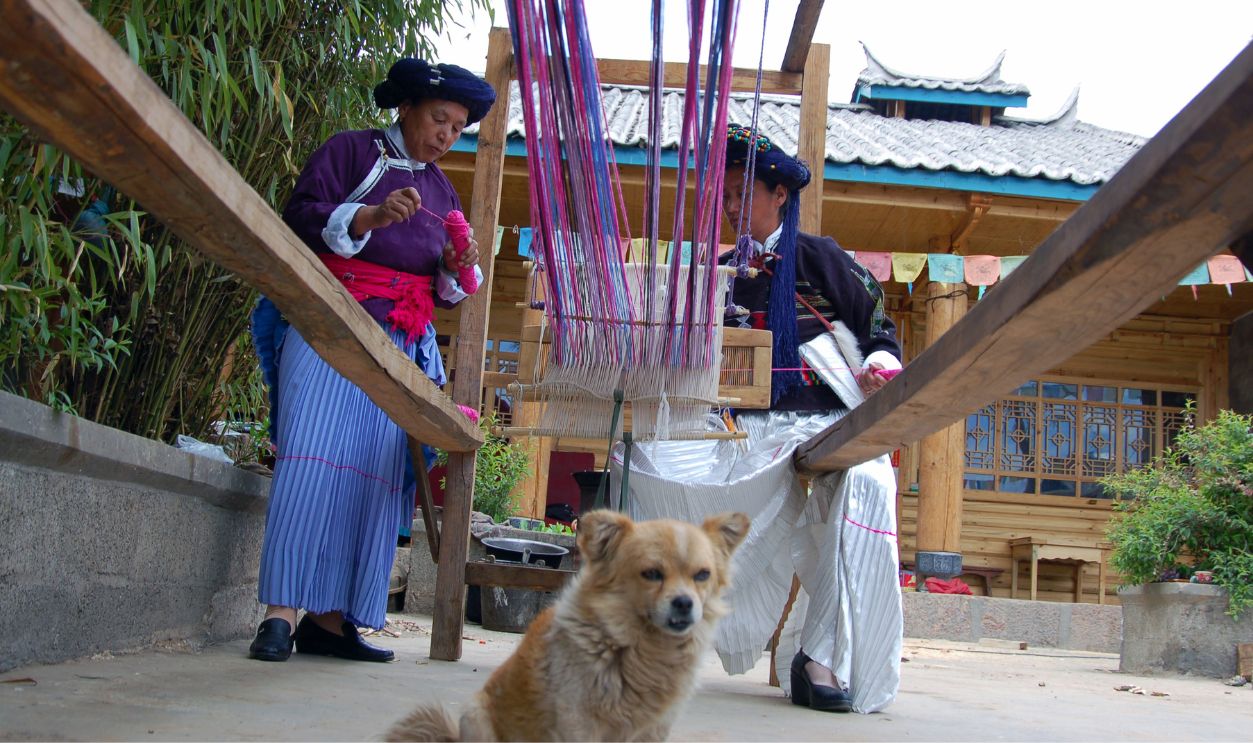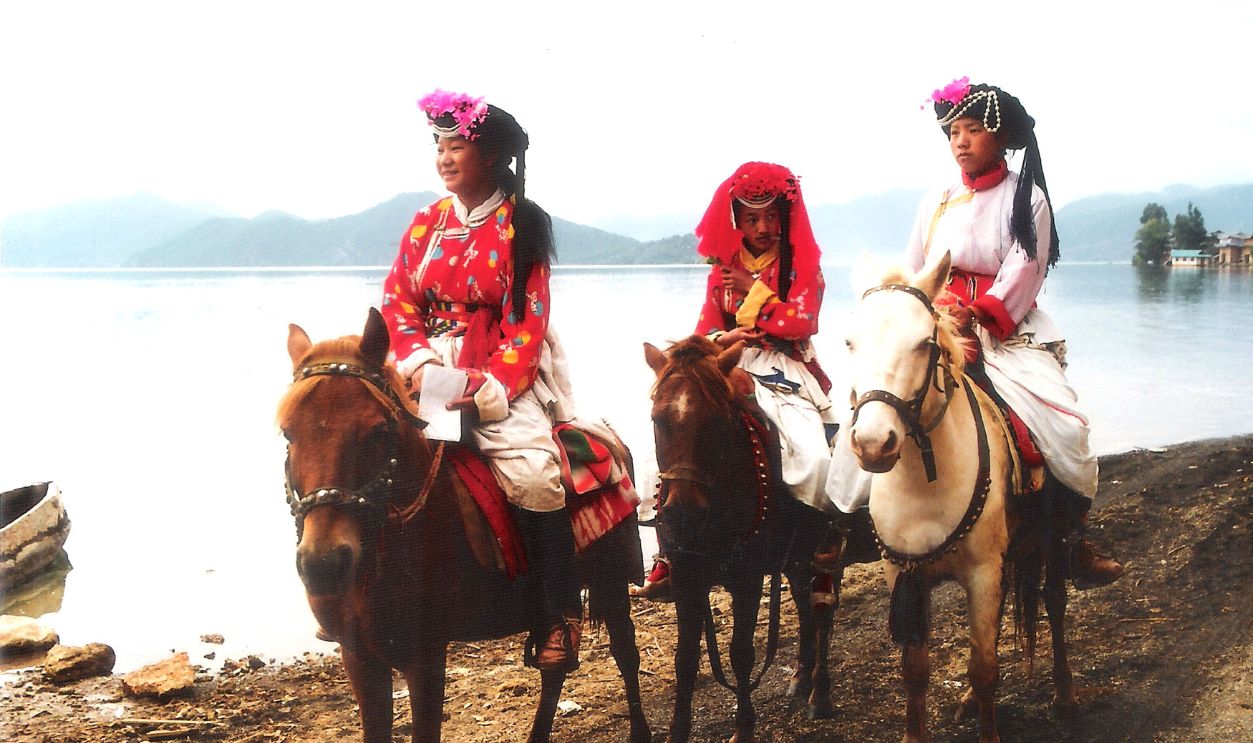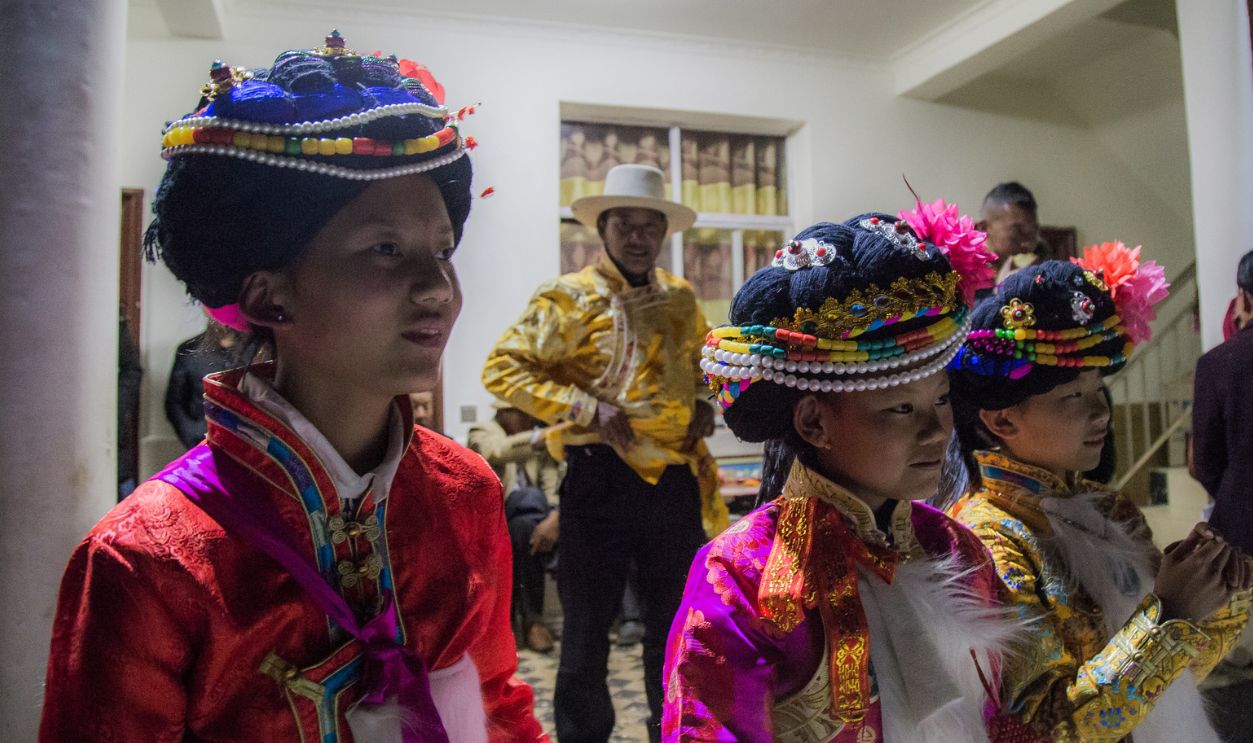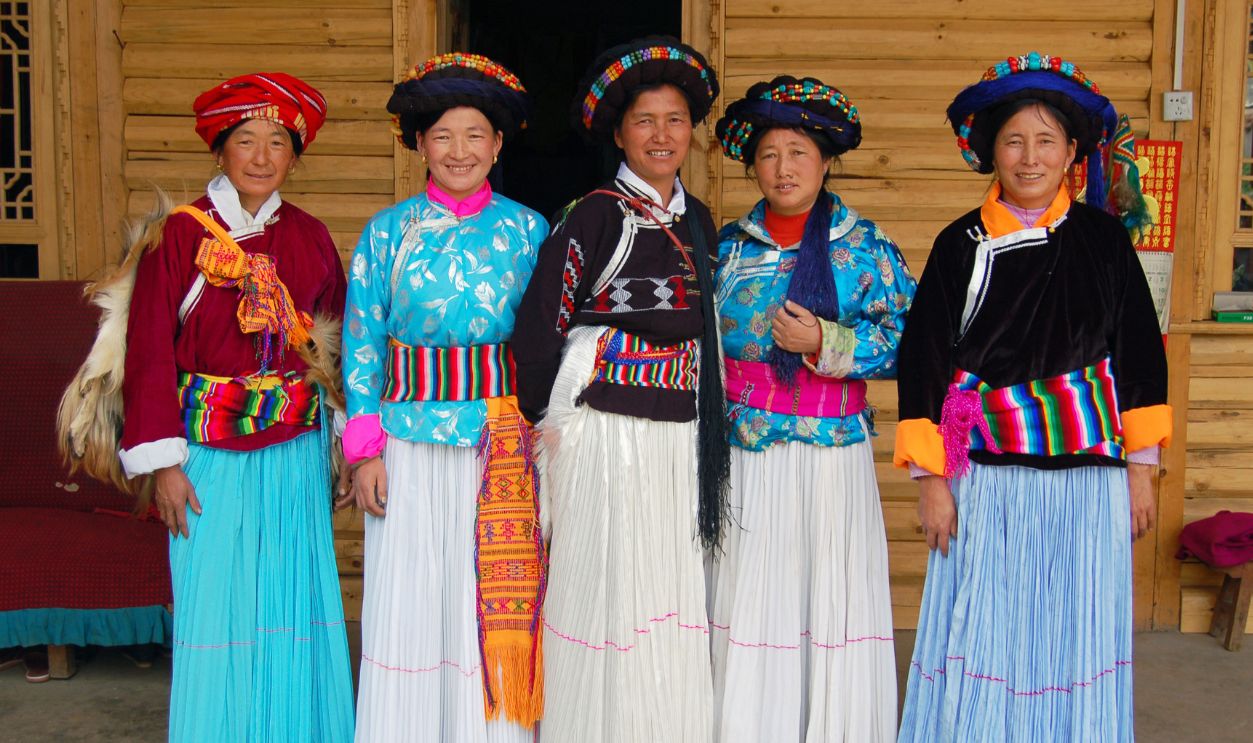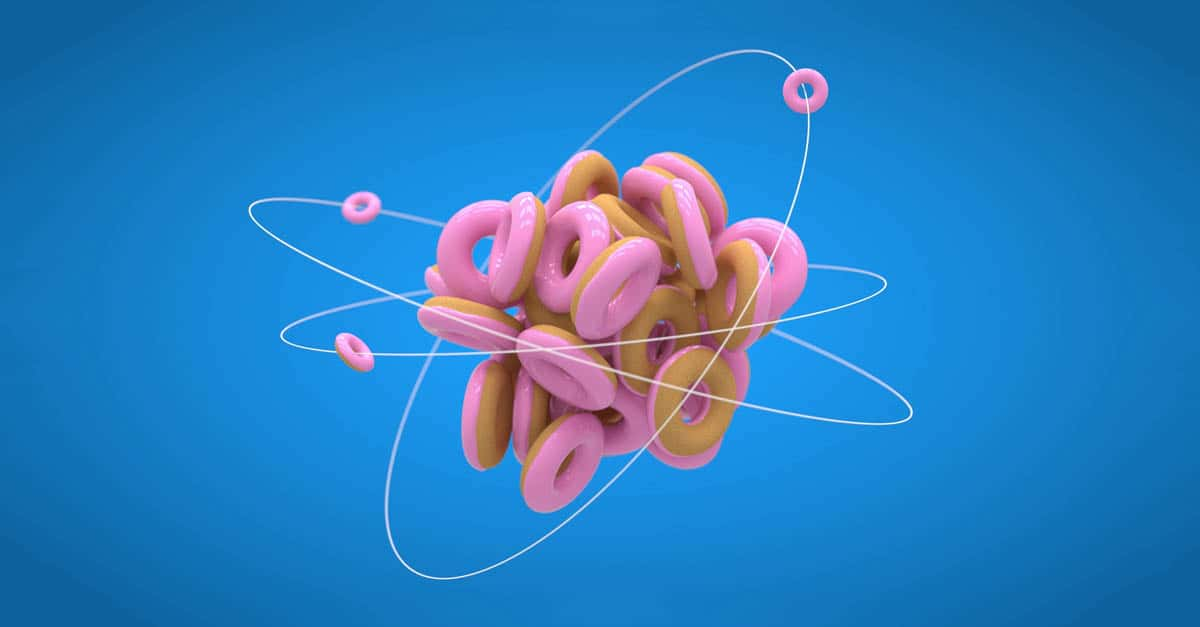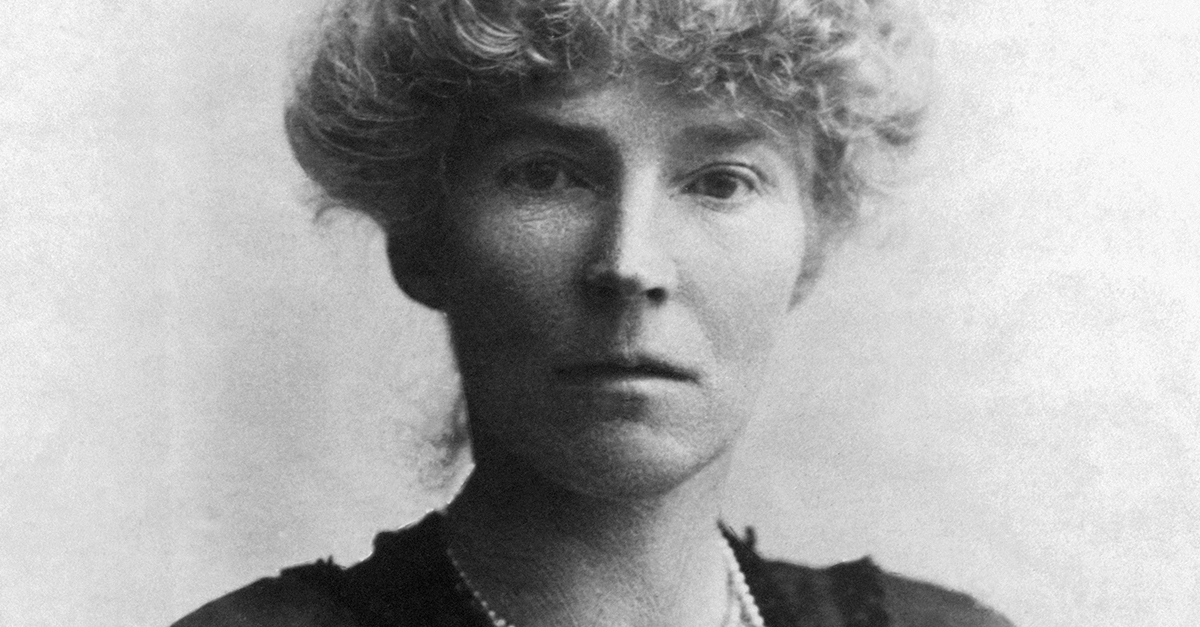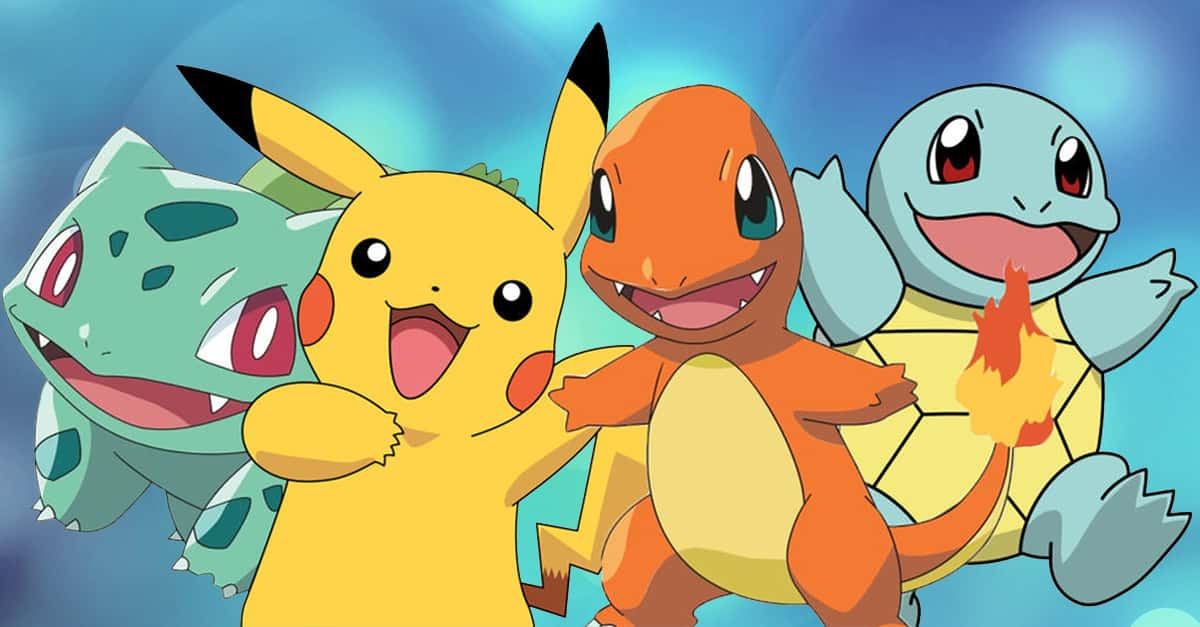The Mosuo People
For centuries, hidden in the highlands of Yunnan and Sichuan in southwest China, the Mosuo people have quietly lived in a way that flips the “traditional” family structure upside down. Sometimes called the “Kingdom of Women,” this small ethnic group—about 50,000 strong—has fascinated outsiders with its matrilineal system, unusual “walking marriages,” and the powerful role women play in family and community life.
The Last Matrilineal Society In China
The Mosuo are often called China’s last matrilineal society, where lineage passes through women rather than men. While “matriarchal” gets tossed around, the truth is more complex—political power often falls to men, but at home, women call the shots. This blend of tradition makes their way of life hard to categorize and endlessly fascinating.
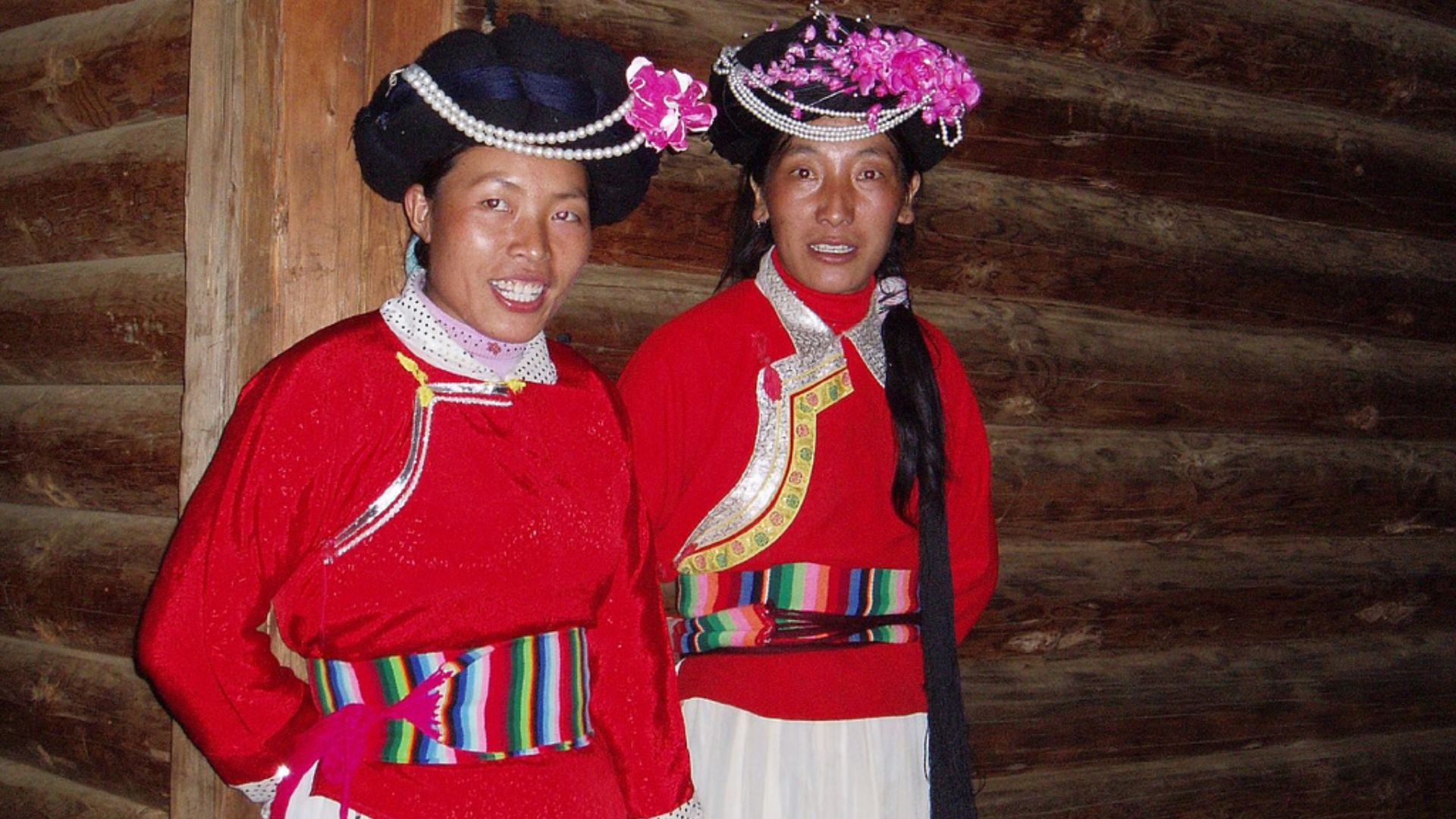 Goddess Sherry, Wikimedia Commons
Goddess Sherry, Wikimedia Commons
Life Along The Shores Of Lugu Lake
Regionally, a large portion of the Mosuo live around the Lugu Lake. The stunning water is a natural magnet for tourists, meaning many of their families have ample opportunities to mix their tradition with modern influence. They welcome outsiders to learn about them, and enjoy learning from them as well.
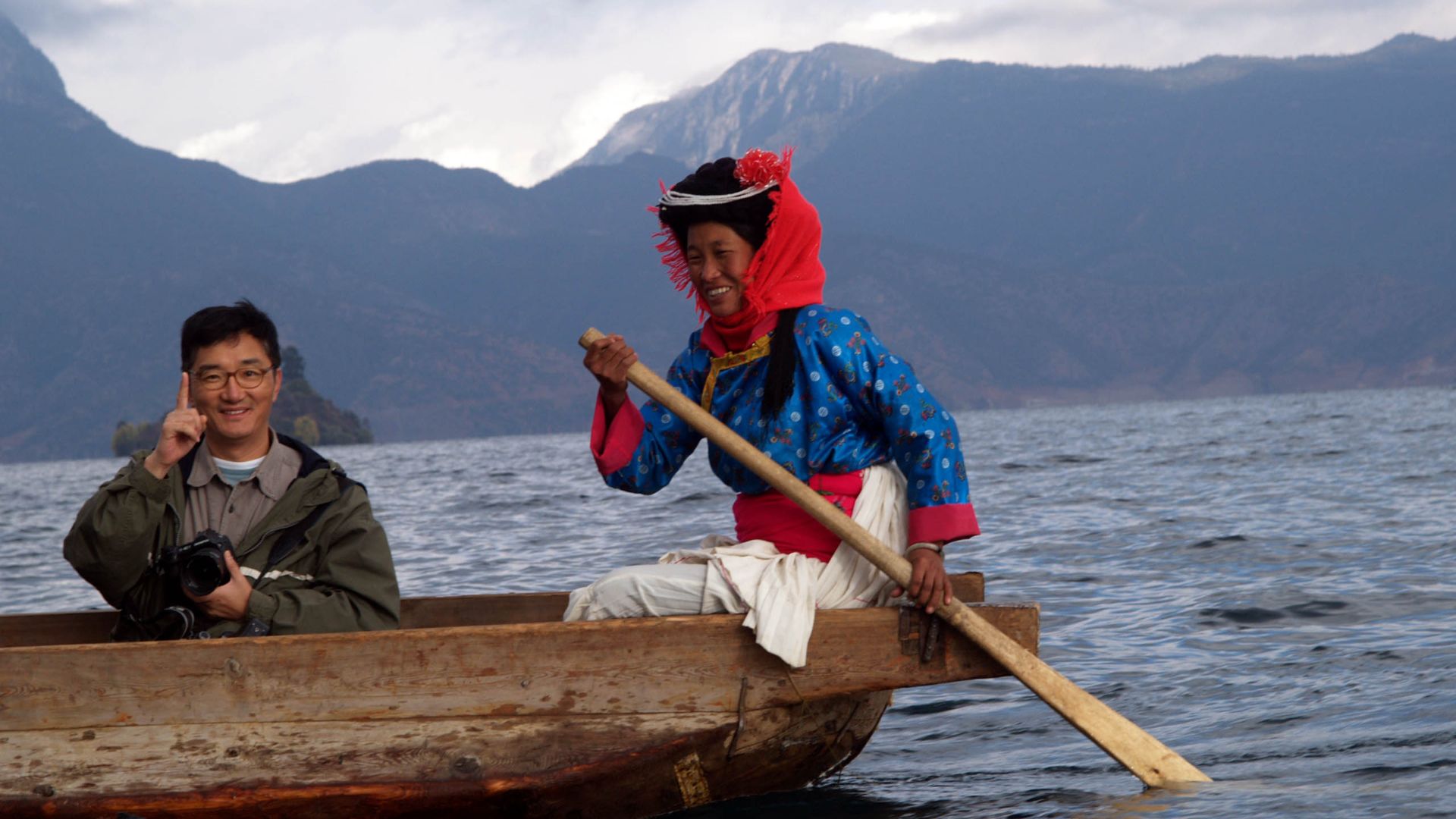 Himangframe, Wikimedia Commons
Himangframe, Wikimedia Commons
Women As Heads Of The Household
In Mosuo homes, it’s the senior woman, known as the Ah mi, who rules. That means she handles all the finances, hands out the chores, and is expected to make all the major decisions regarding the household. As such, once she passes her authority to the next woman in line, she transfers over a great deal of power.
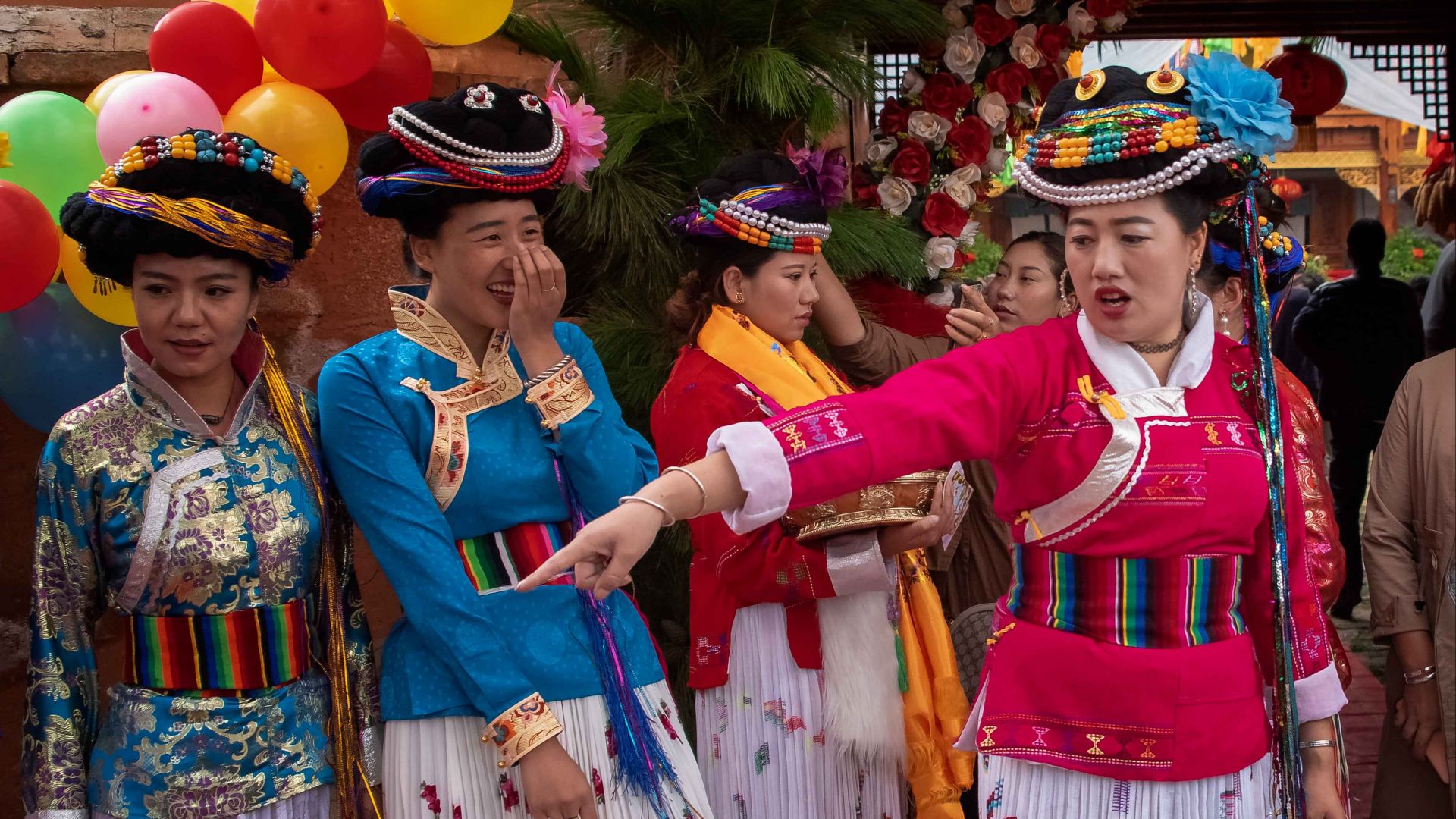 Rod Waddington from Kergunyah, Australia, Wikimedia Commons
Rod Waddington from Kergunyah, Australia, Wikimedia Commons
A Home Built Around A Courtyard
Traditionally, the Mosuo’s homes are arranged around a courtyard, which becomes a central place for the community. They live in multilevel homes, keeping livestock on the ground floor and their own dwelling and sleeping areas above.
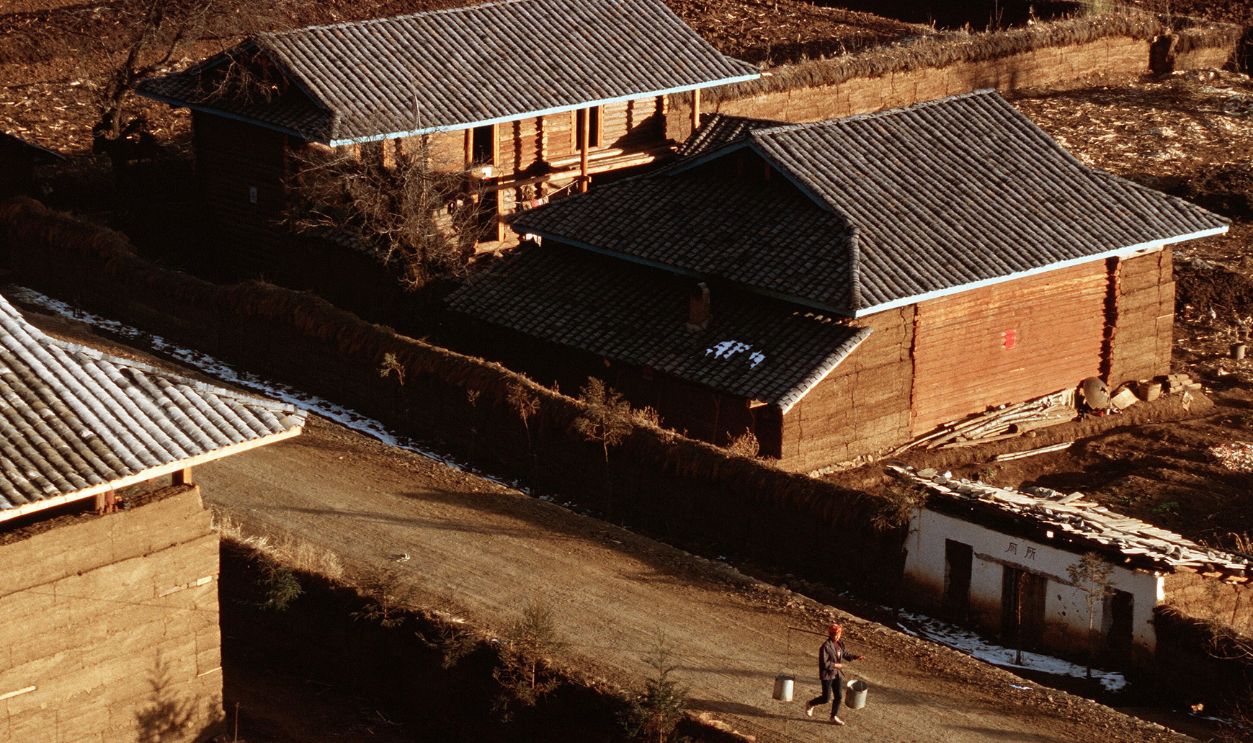 Patrick AVENTURIER, Getty Images
Patrick AVENTURIER, Getty Images
Farming As A Way Of Life
Their survival centers around their agriculture. They raise many types of livestock, including goats and yaks. They also cultivate crops of potatoes, vegetables, and grains. They share the work amongst the entire family, but women handle the more domestic things, while men build and herd the larger animals.
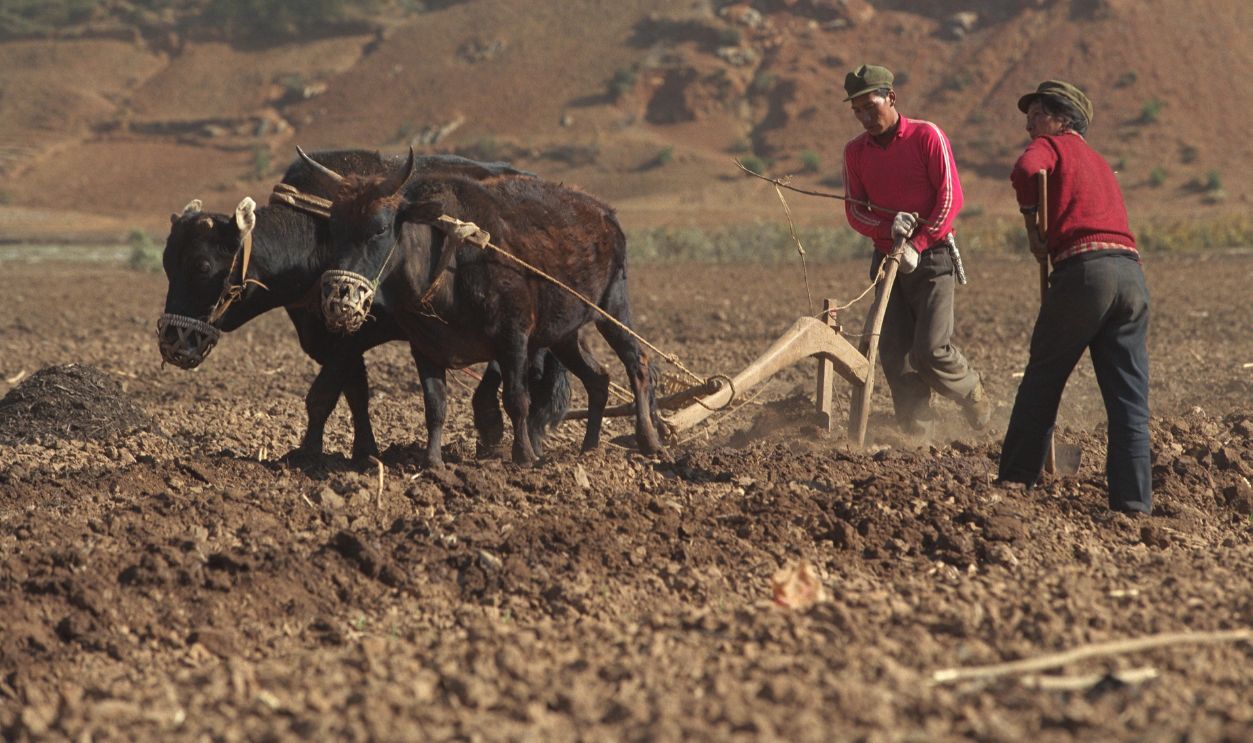 Langevin Jacques, Getty Images
Langevin Jacques, Getty Images
Preserved Pork For A Decade
The Mosuo are famous for their preserved pork, which can be stored for up to ten years. Without refrigeration, smoking and salting are essential preservation techniques. This unique food tradition provides security during harsh winters.
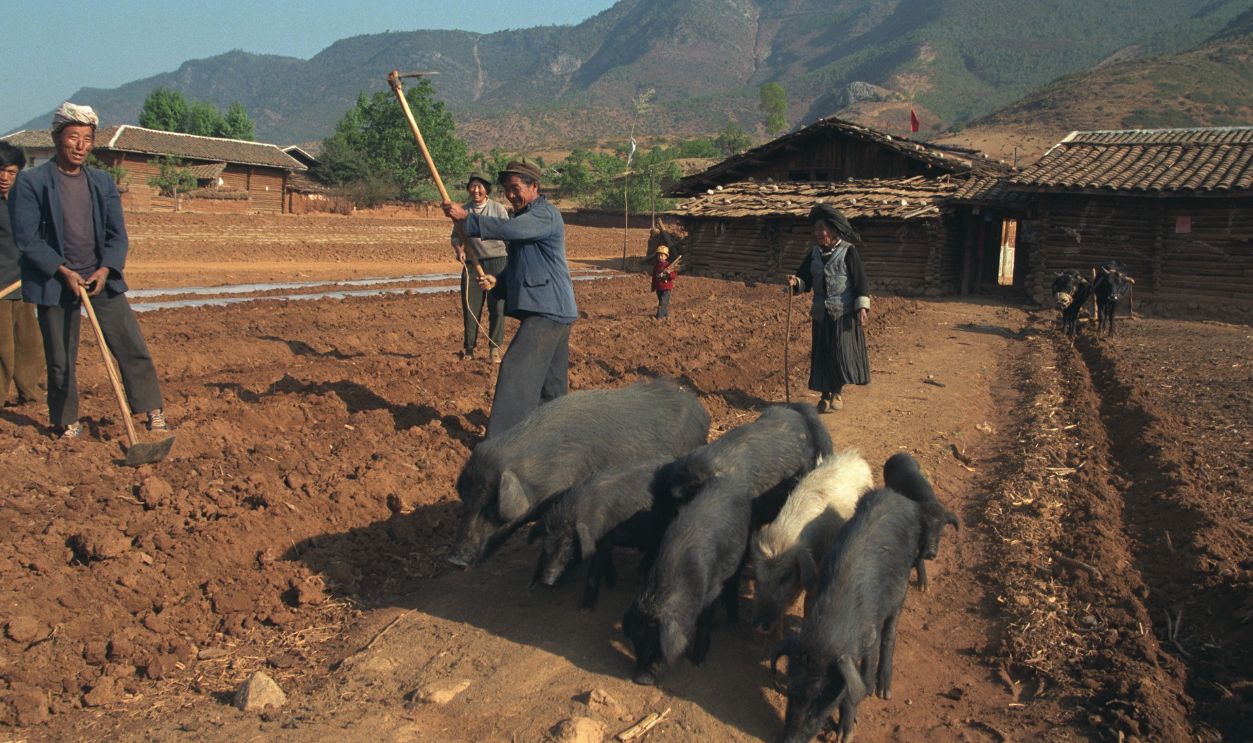 Langevin Jacques, Getty Images
Langevin Jacques, Getty Images
The Importance Of Sulima
A local grain-based alcohol called sulima flows freely in Mosuo culture. It’s not just a drink—it’s part of ceremonies, festivals, and daily hospitality. The people even greet visitors with a cup. Its a warm symbol of welcome and community.
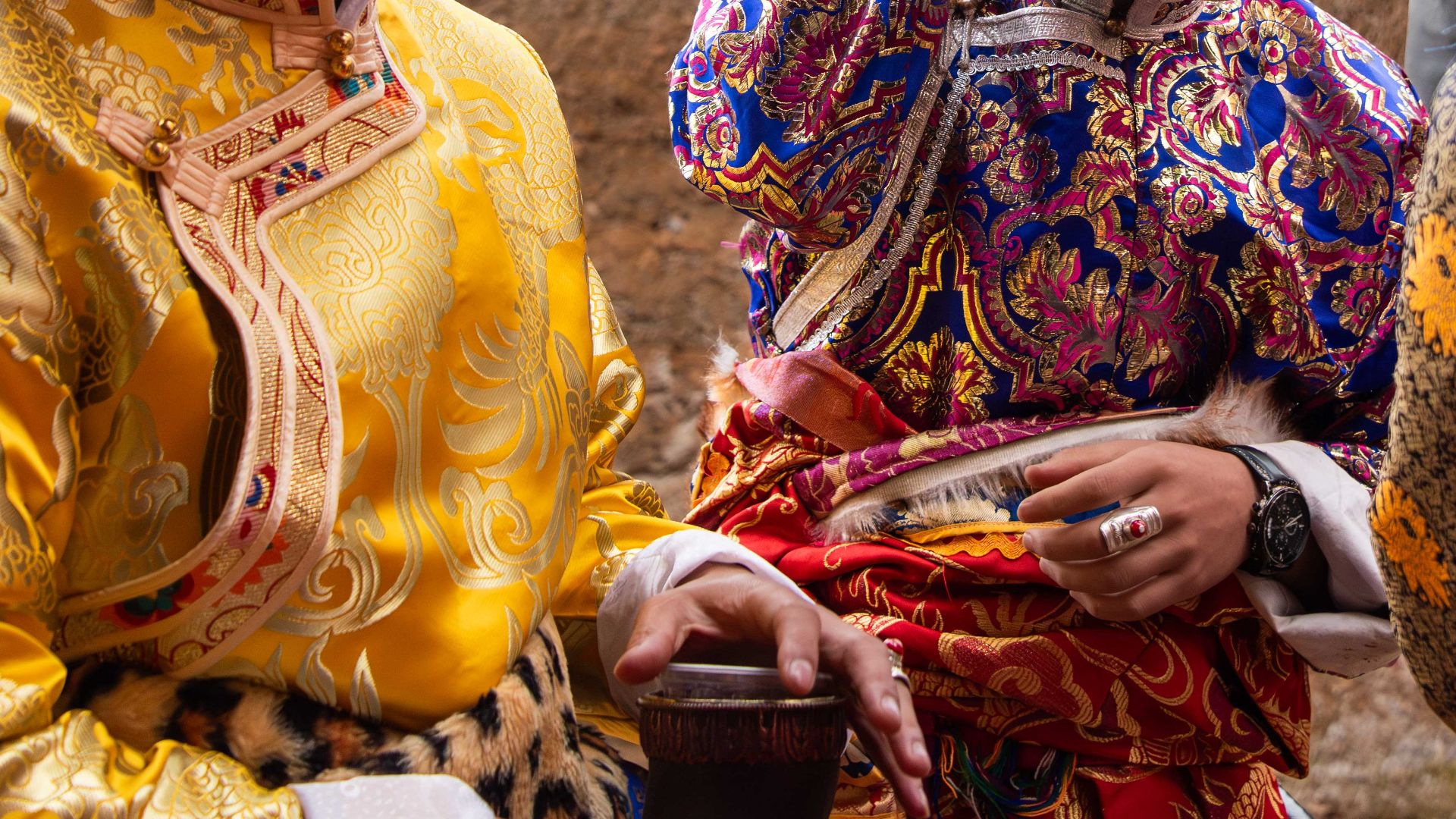 Rod Waddington, Wikimedia Commons
Rod Waddington, Wikimedia Commons
The Walking Marriage Tradition
Perhaps the most famous Mosuo practice is the “walking marriage.” Couples don’t live together; instead, men visit women at night and return to their own families by dawn. It’s a system built on affection and choice, not obligation.
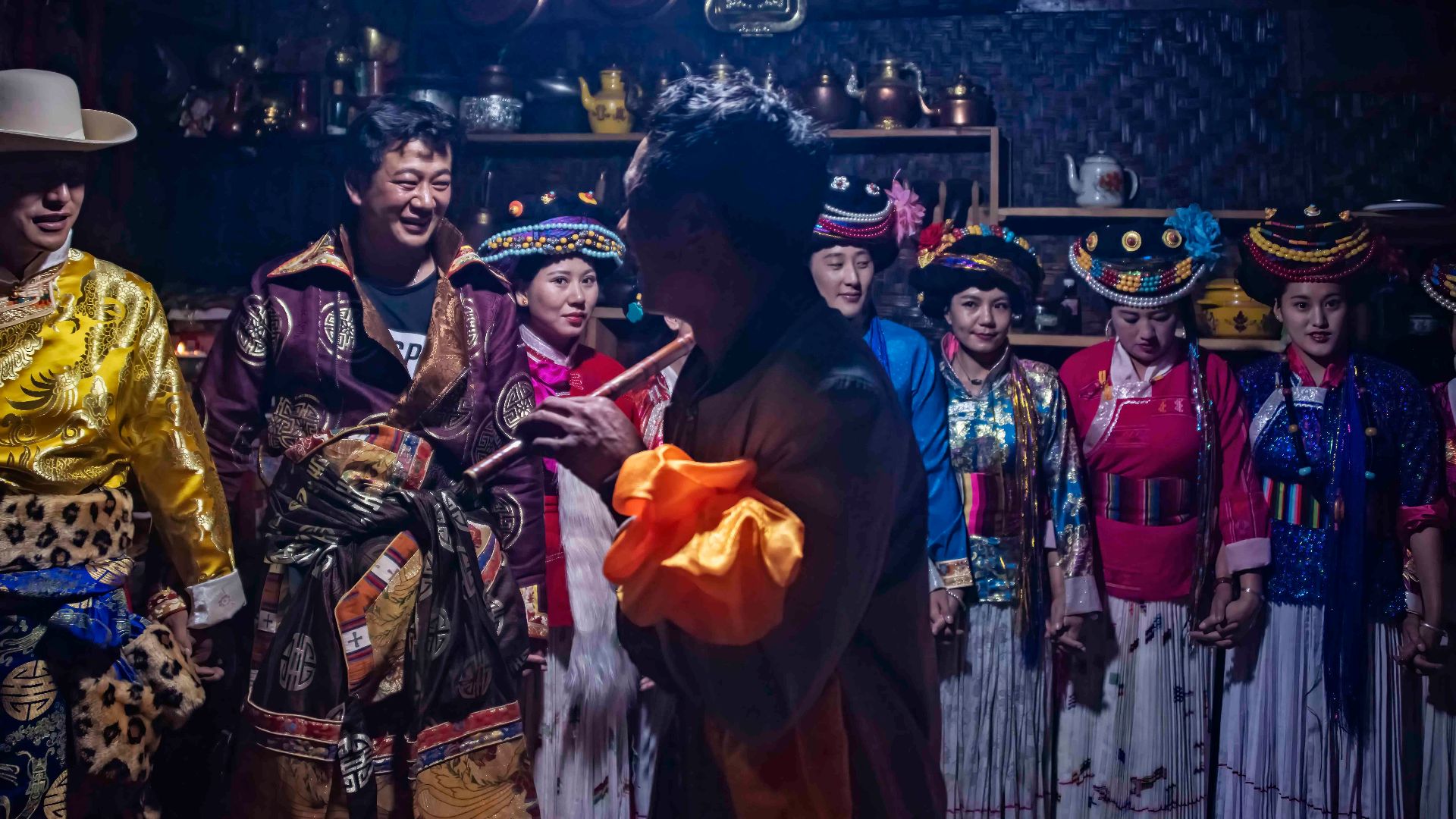 Rod Waddington from Kergunyah, Australia, Wikimedia Commons
Rod Waddington from Kergunyah, Australia, Wikimedia Commons
A Father Without Fatherly Duties
In Mosuo culture, fathers aren’t the primary caregivers. Children are raised by their mother’s family, especially maternal uncles. A biological father might play a ceremonial role, but the real “dad figures” are usually the brothers of the mother.
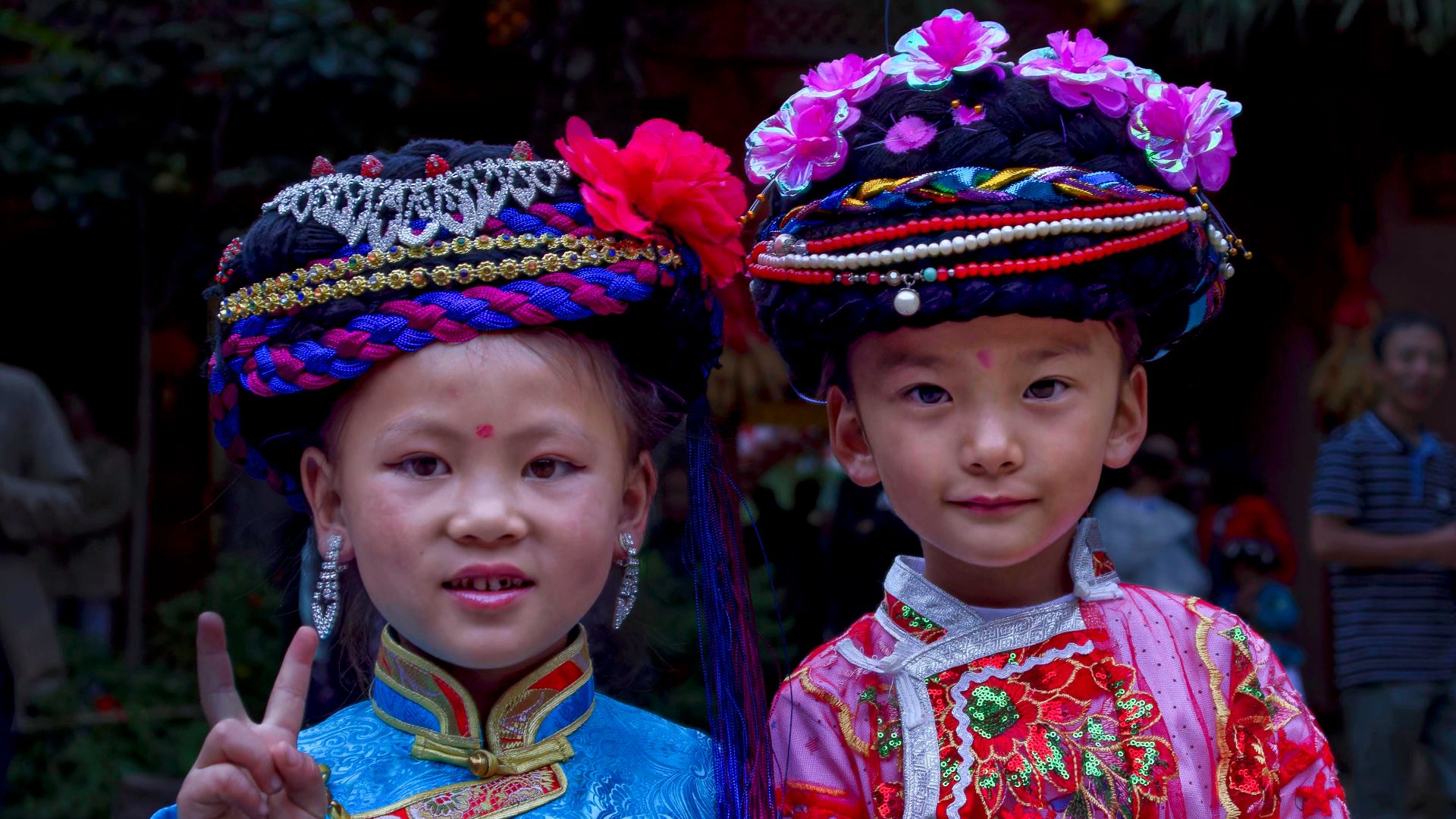 Rod Waddington from Kergunyah, Australia, Wikimedia Commons
Rod Waddington from Kergunyah, Australia, Wikimedia Commons
Women Hold The Line Of Descent
Since inheritance passes through the female line, daughters remain the pillars of continuity. Sons may leave or drift into new roles, but daughters are central to keeping the household alive. This makes women the anchors of Mosuo society.
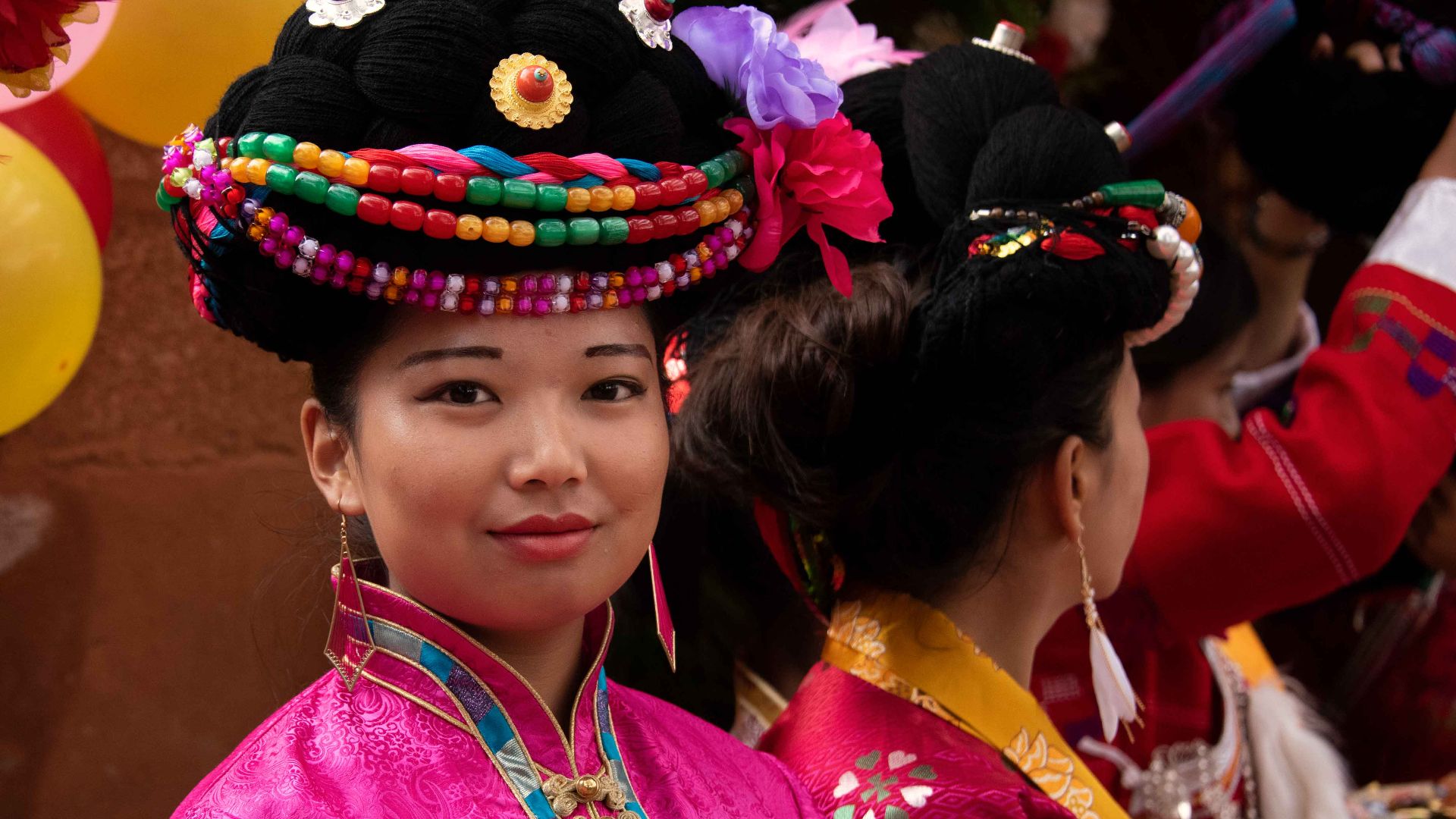 Rod Waddington from Kergunyah, Australia, Wikimedia Commons
Rod Waddington from Kergunyah, Australia, Wikimedia Commons
Men Have Their Own Responsibilities
It’s a myth that Mosuo men “do nothing”. They handle tasks like herding, fishing, slaughtering livestock, and building homes. They also play crucial roles as uncles, shaping the lives of their sisters’ children.
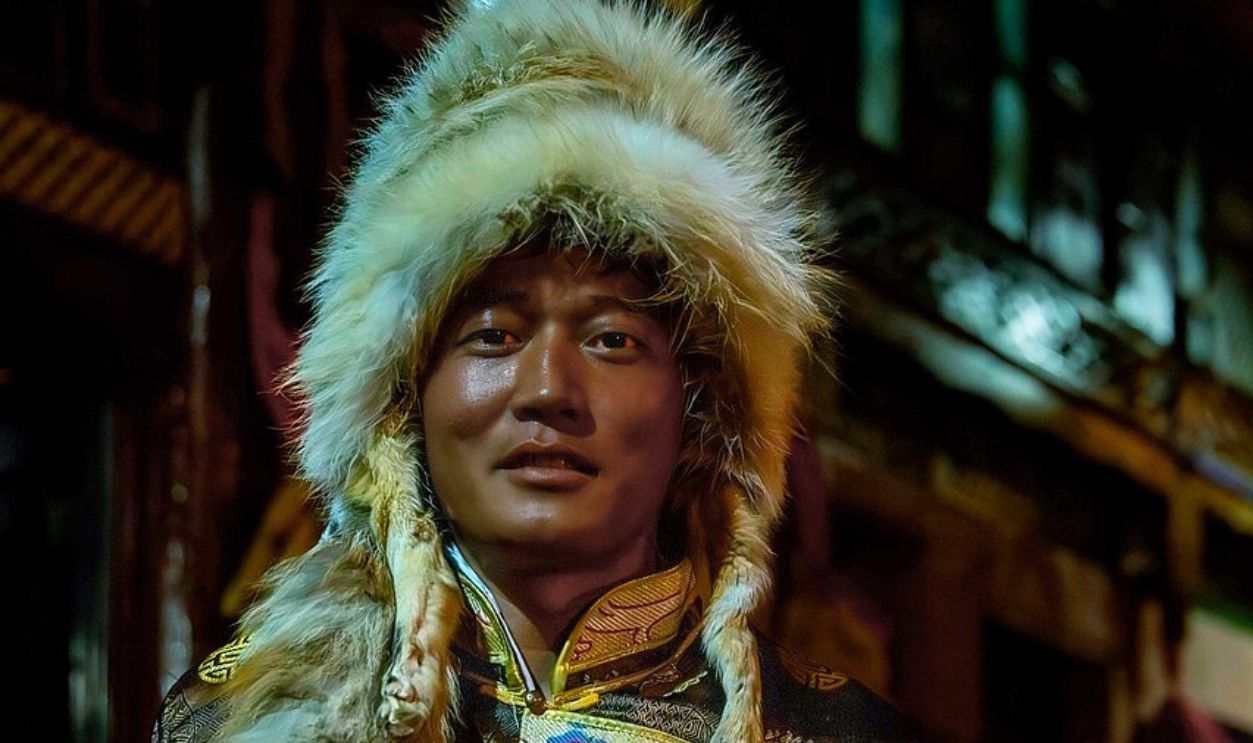 Rod Waddington, CC BY-SA 2.0, Wikimedia Commons
Rod Waddington, CC BY-SA 2.0, Wikimedia Commons
Coming Of Age In A Skirt Or Trousers
At age thirteen, Mosuo children undergo a coming-of-age ceremony. Girls receive skirts, boys receive trousers—symbols that mark their entry into adulthood. For girls, it also means the right to have their own private room and begin walking marriages.
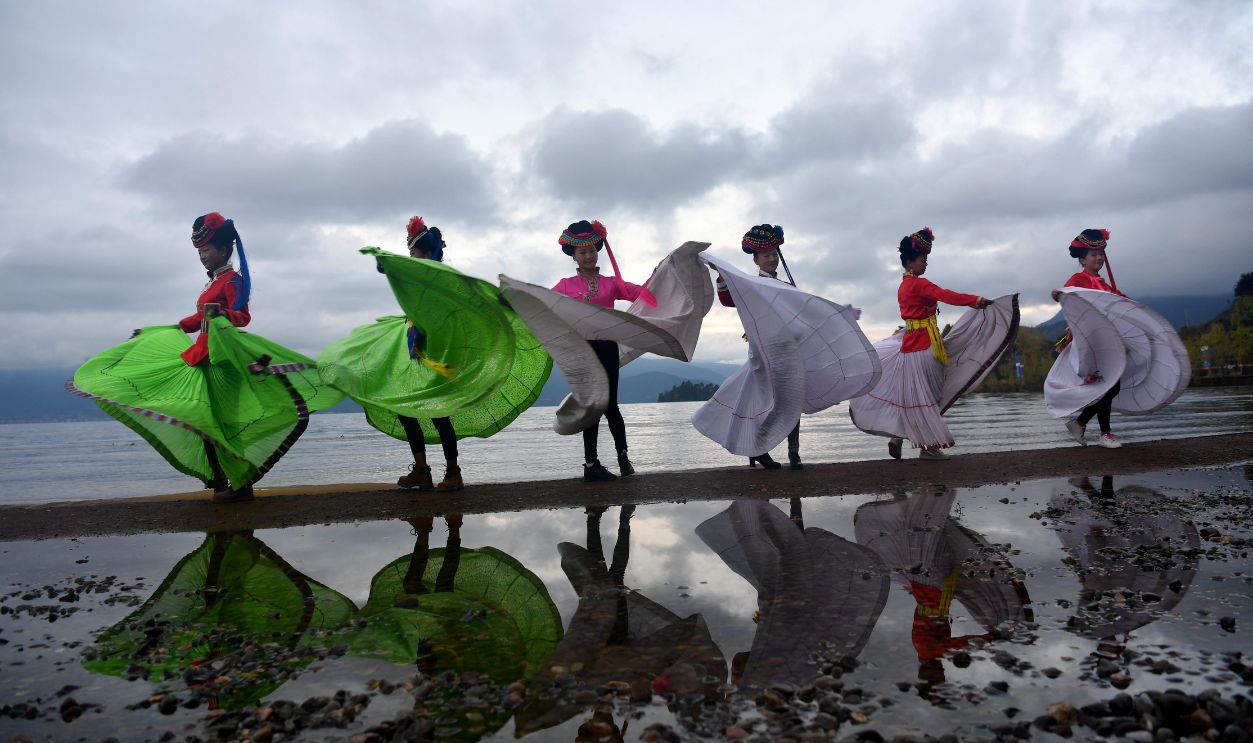 China News Service, Getty Images
China News Service, Getty Images
The Flowering Room Of Young Women
Once a girl comes of age, she may receive a private space called a “flowering room”. This is where she can welcome partners, marking the unique freedom Mosuo women enjoy in relationships.
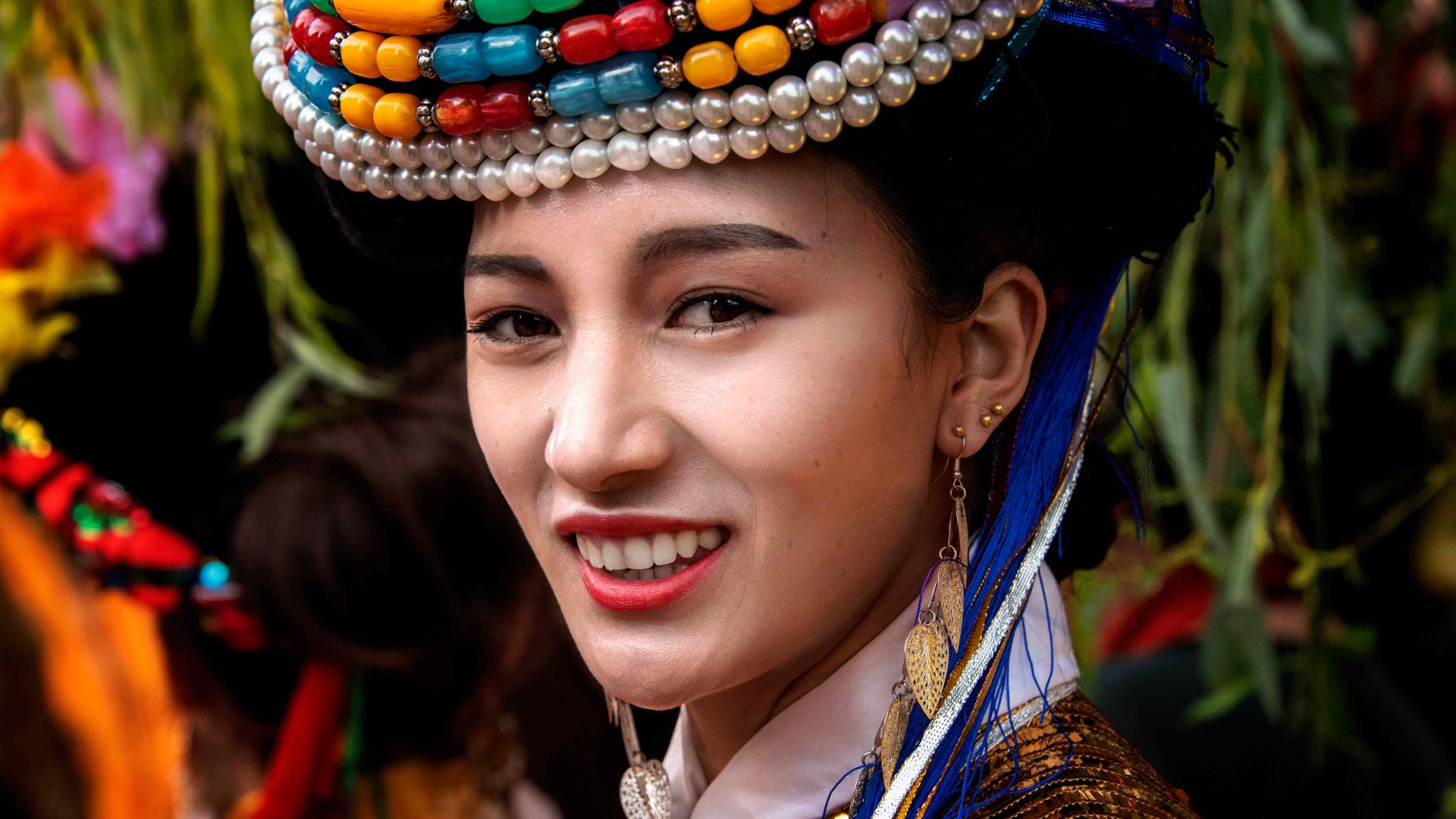 Rod Waddington from Kergunyah, Australia, Wikimedia Commons
Rod Waddington from Kergunyah, Australia, Wikimedia Commons
The Role Of Dogs In Myth And Family
Dogs are cherished among the Mosuo and never eaten. A legend tells that humans once traded lifespans with dogs, explaining why dogs are so respected. Even coming-of-age ceremonies involve honoring family dogs.
A Man’s Domain
While women dominate domestic life, funerals are a male responsibility. Men prepare food, manage ceremonies, and ensure the spirit finds its way to the afterlife. It’s one of the rare spaces where men take full charge.
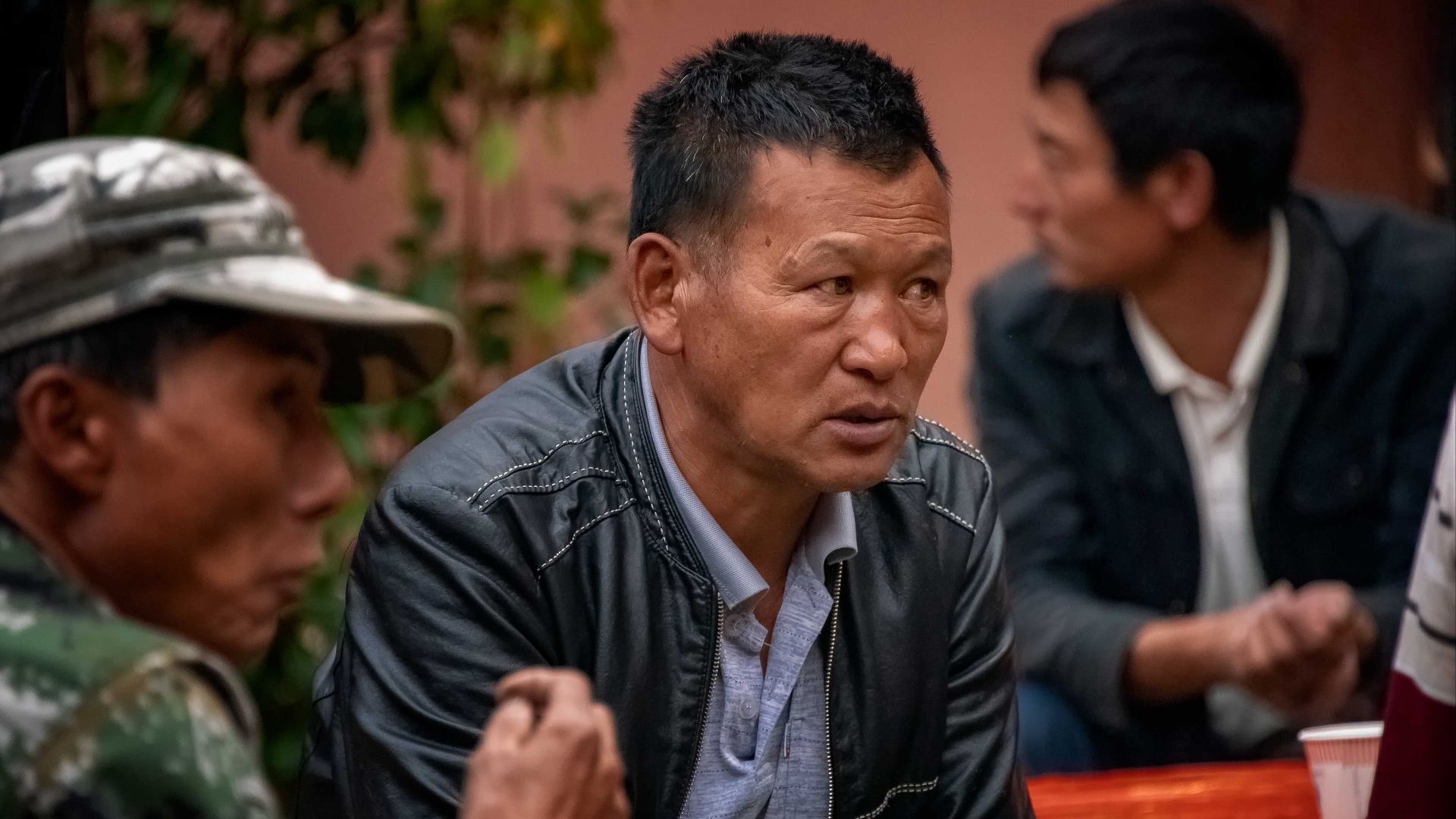 Rod Waddington from Kergunyah, Australia, Wikimedia Commons
Rod Waddington from Kergunyah, Australia, Wikimedia Commons
Religion Through Daba And Buddhism
The spirituality of the Mosuo blends their ancient faith of Daba with more current Tibetan Buddhism. Their own traditional faith focuses on worshiping ancestors and the incorporation of animals in some spiritual beliefs. The Buddhism they’ve adapted comes with monasteries and more formal rituals.
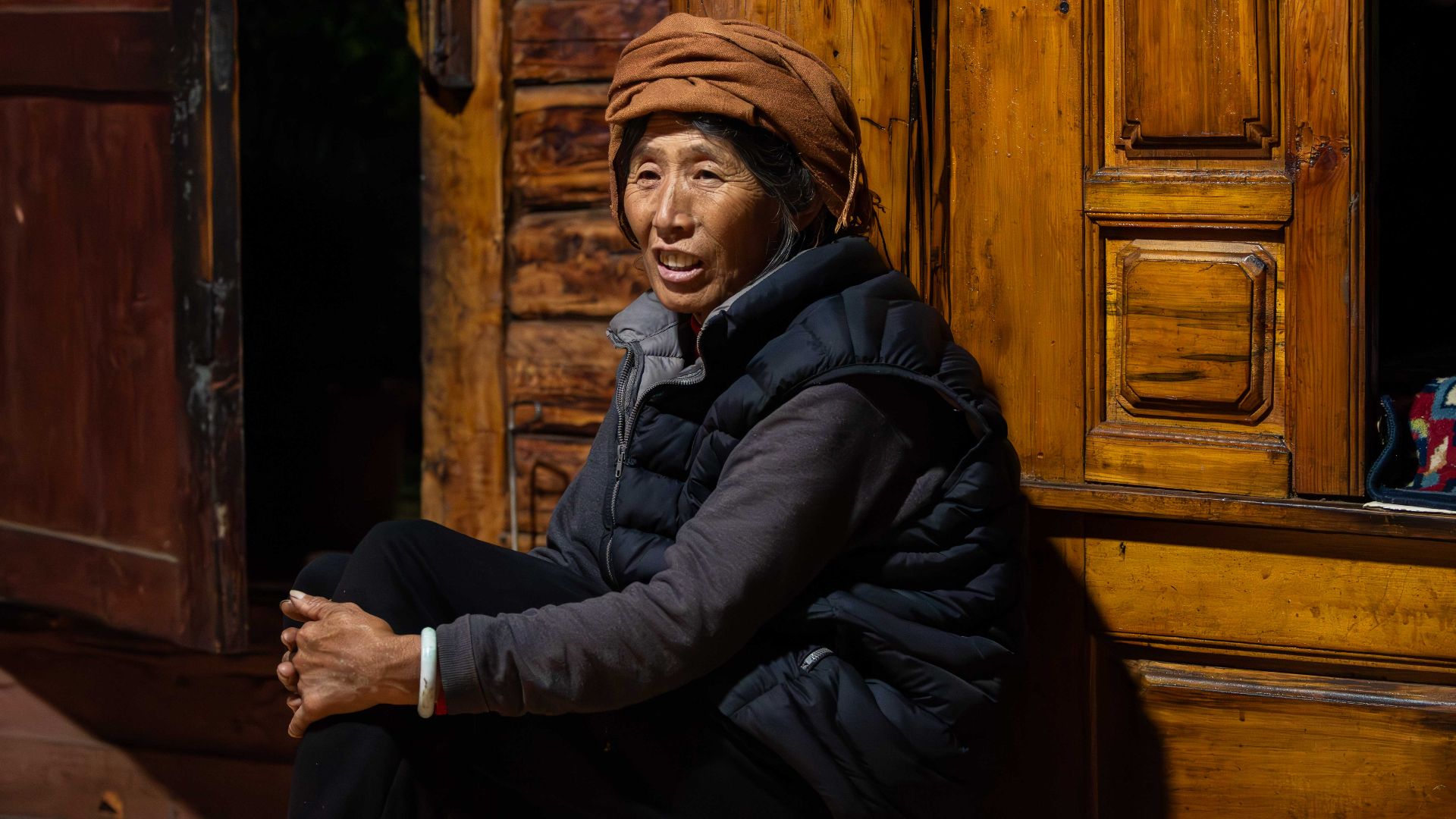 Rod Waddington, Wikimedia Commons
Rod Waddington, Wikimedia Commons
The Daba Shamans
Daba shamans preserve oral traditions, myths, and spiritual practices. They often enter trances during ceremonies to speak with spirits. But with few Daba left, many worry the tradition may soon disappear.
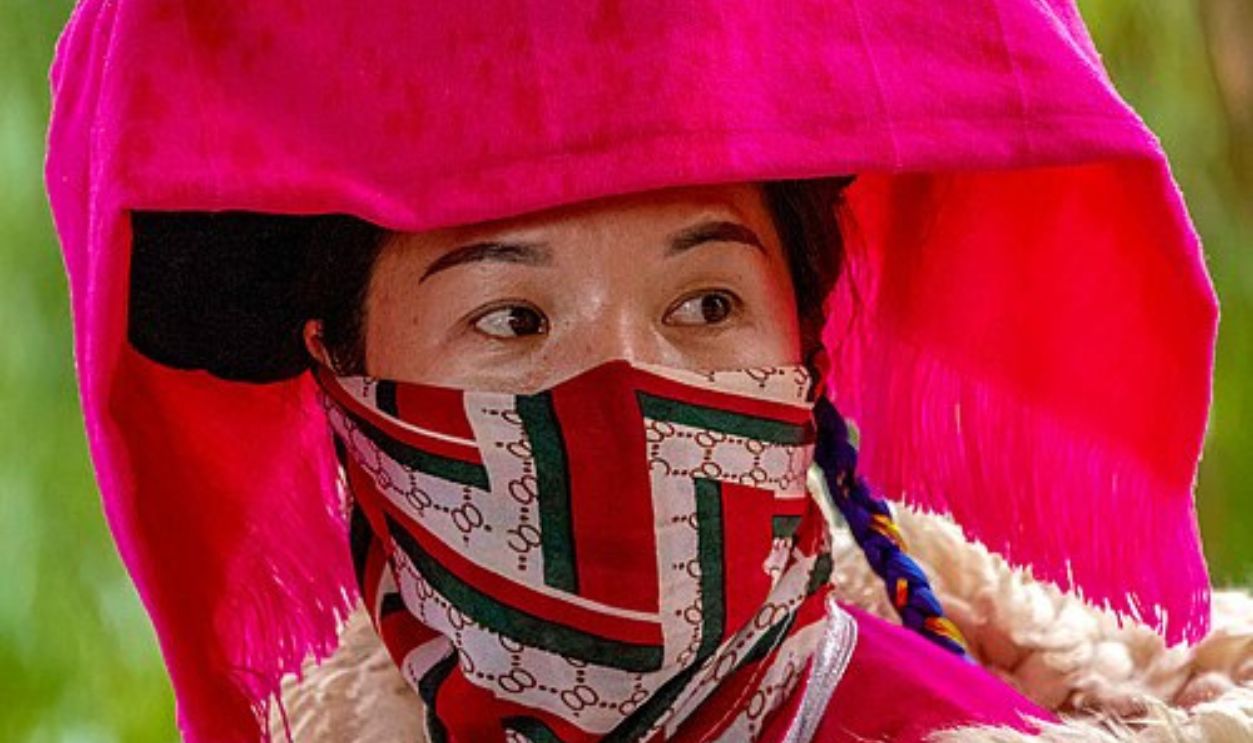 Rod Waddington from Kergunyah, Australia, CC BY-SA 2.0, Wikimedia Commons
Rod Waddington from Kergunyah, Australia, CC BY-SA 2.0, Wikimedia Commons
The Influence Of Tibetan Buddhism
In recent decades, Tibetan Buddhism has grown in importance among the Mosuo. Families often send sons to monasteries, and statues of Buddhist deities can be found in kitchens. Festivals and prayers are now central to community life.
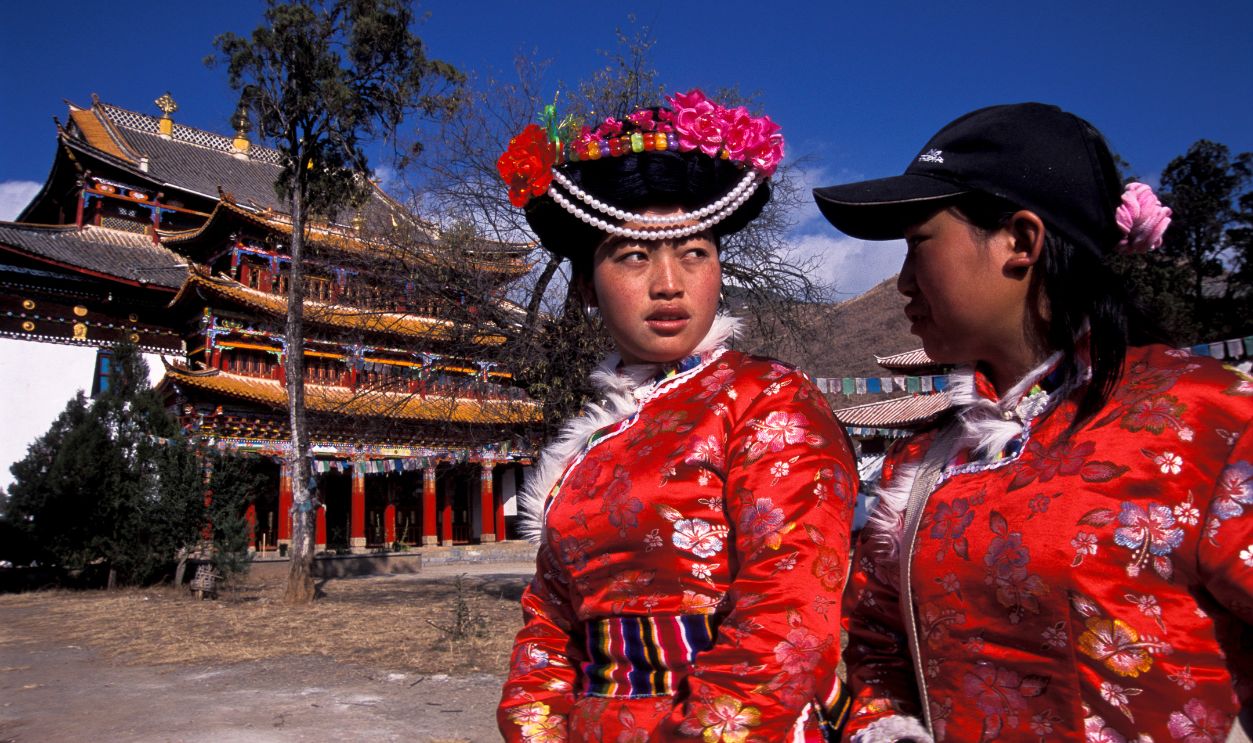 Christopher Pillitz, Getty Images
Christopher Pillitz, Getty Images
Tourism Changes Everything
With Lugu Lake becoming a tourist hub, Mosuo culture has been both preserved and reshaped. While some outsiders come seeking the “Kingdom of Women,” the reality is more nuanced. Tourism brings money—but also pressures to commercialize tradition.
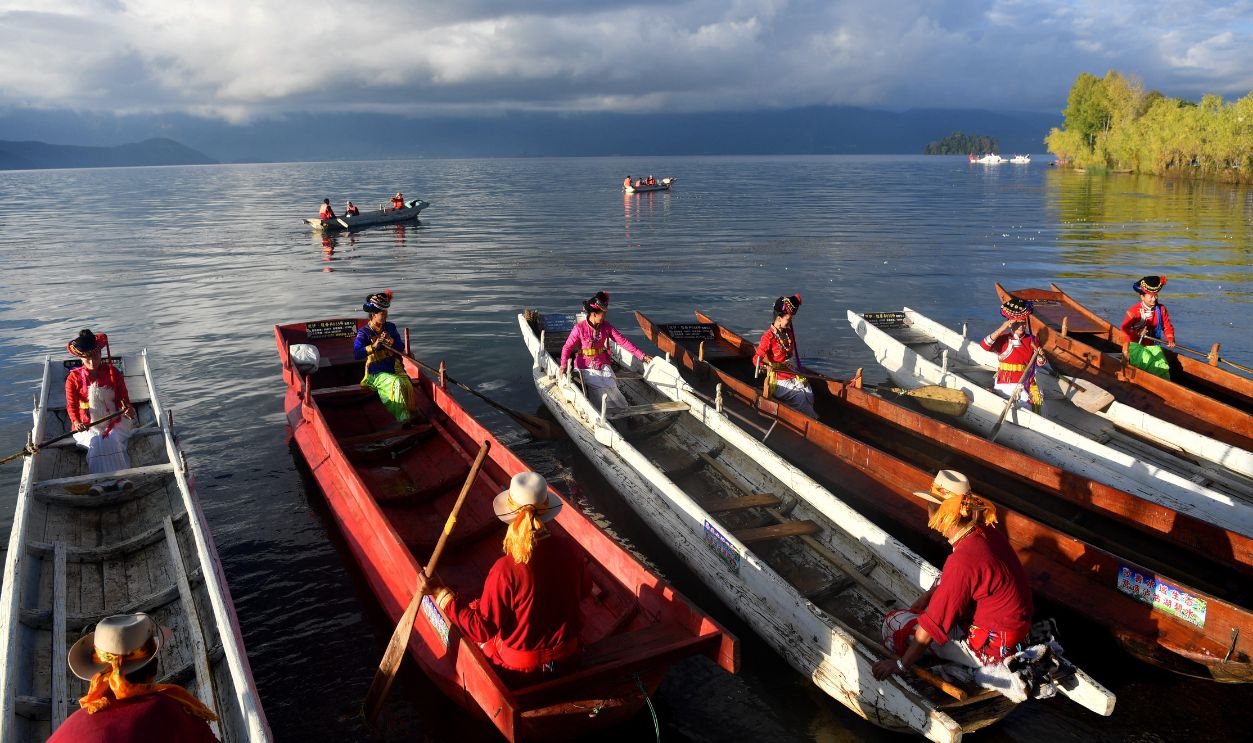 China News Service, Getty Images
China News Service, Getty Images
The Mosuo And Language
The Mosuo speak Na (Narua), a Sino-Tibetan language closely related to Naxi. While most also use Mandarin, their own tongue carries centuries of oral history. It’s one more way they remain distinct in modern China.
Adoption And Family Expansion
If a family lacks children of one gender, adoption is common. Adopted children are treated as equals and can even inherit leadership roles. This practice ensures households remain strong and balanced.
Matrilineal Nobility Of The Past
Historically, Mosuo society had noble and peasant classes. Nobles passed status through both male and female lines, creating a complex web of descent. While class distinctions have faded, echoes of that history remain.
Myths About Promiscuity
Many outsiders assume Mosuo women take multiple partners at once, but most practice “serial monogamy”. Long-term relationships are the norm, and while freedom exists, it’s not a free-for-all. The reality is more grounded than the fantasy.
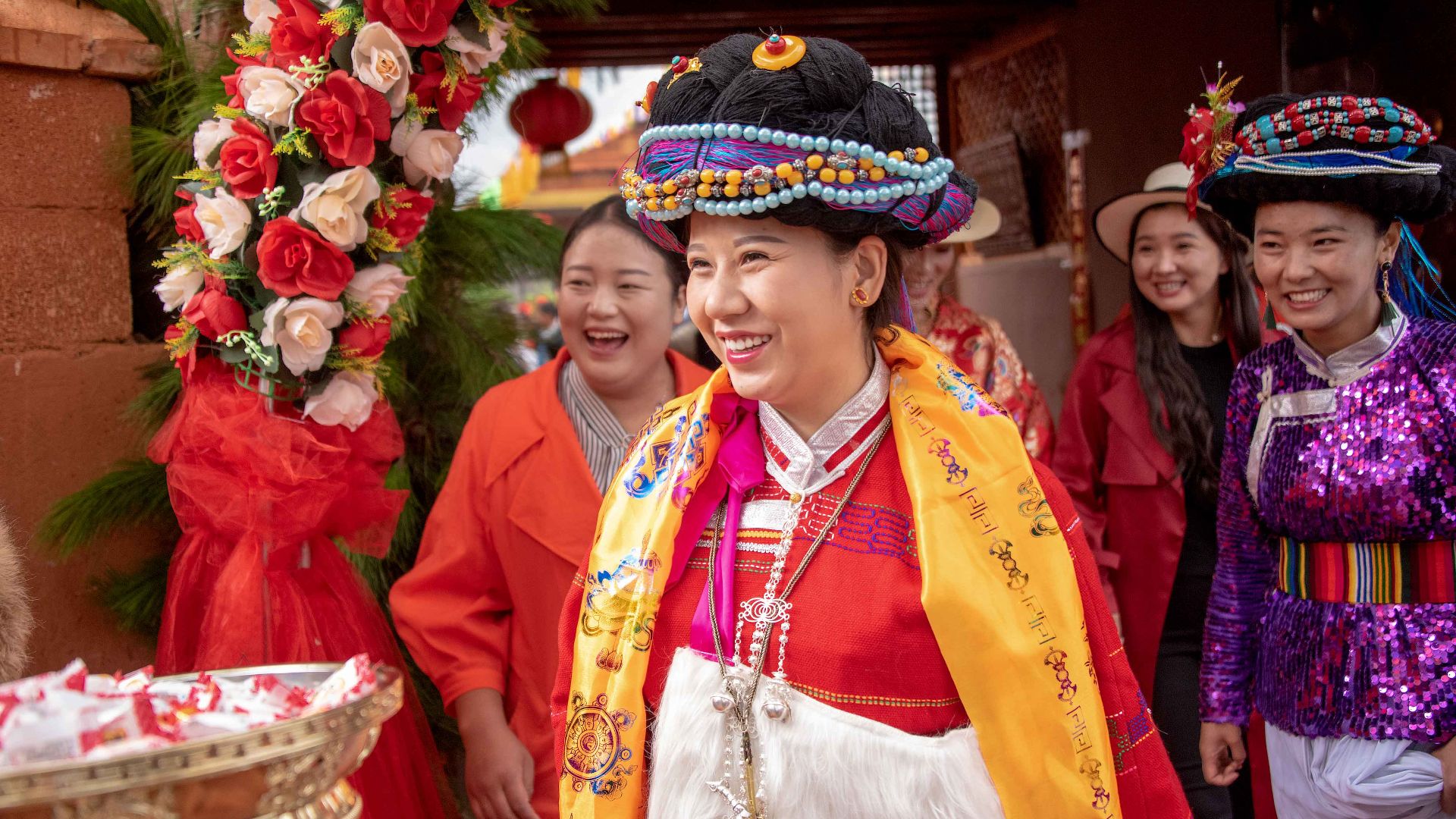 Rod Waddington from Kergunyah, Australia, Wikimedia Commons
Rod Waddington from Kergunyah, Australia, Wikimedia Commons
Modern Tensions In Tradition
With younger generations exposed to outside cities, TV, and jobs, some traditions are shifting. Fathers take on more active roles, and property disputes sometimes arise. Yet, the matrilineal foundation of Mosuo life remains strong.
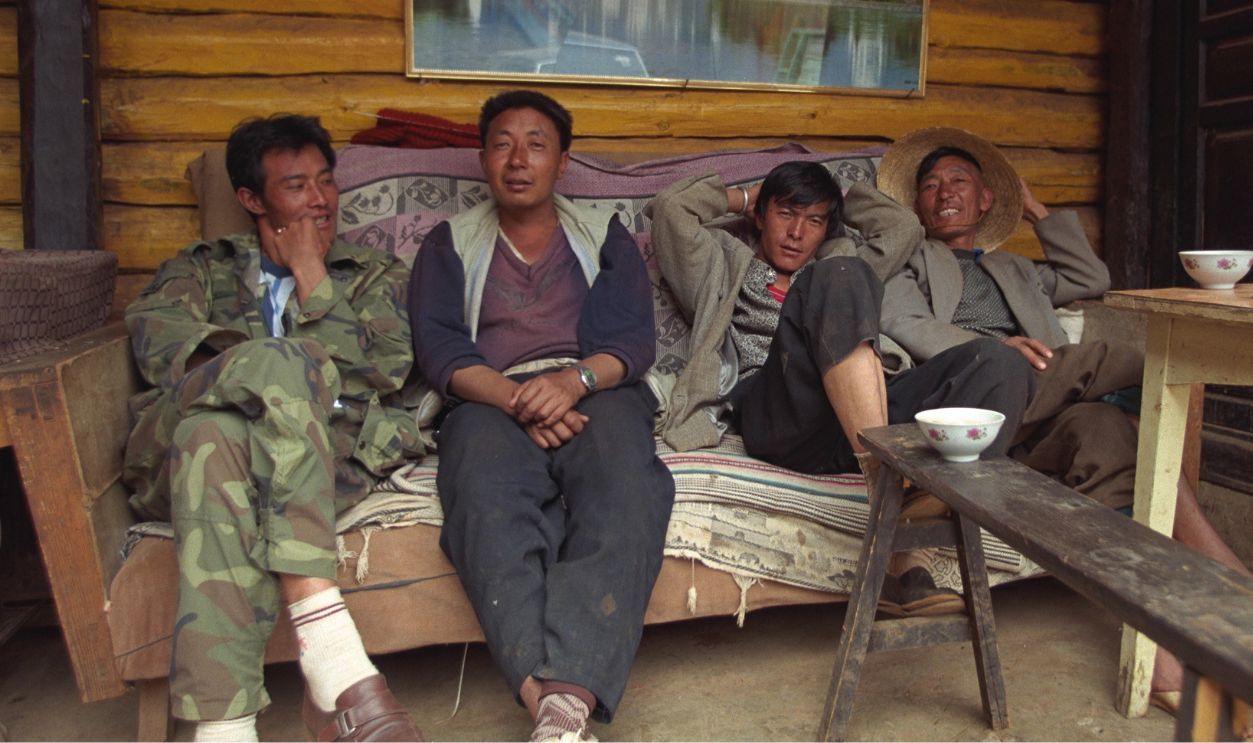 Langevin Jacques, Getty Images
Langevin Jacques, Getty Images
Final Thoughts
The Mosuo show us that family, love, and power don’t always follow the same script we’re used to. Their walking marriages, matrilineal households, and deep respect for women make their culture both mysterious and inspiring. While modern influences continue to reshape their lives, the Mosuo remain a living reminder that society can be built in many different ways.
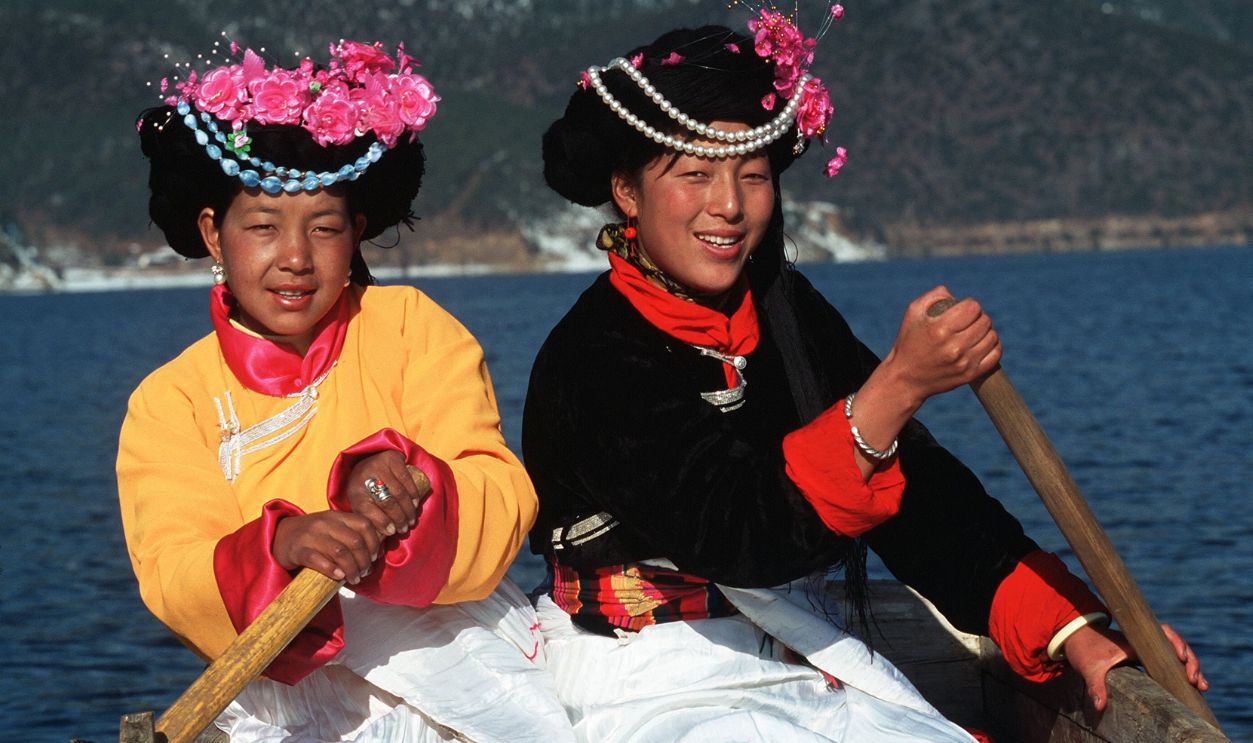 Patrick AVENTURIER, Getty Images
Patrick AVENTURIER, Getty Images
You May Also Like:
Archaeologists Find Ancient God In A Sewer
Photos Of The Mysterious African Tribe That Worships The Forest
Source: 1

